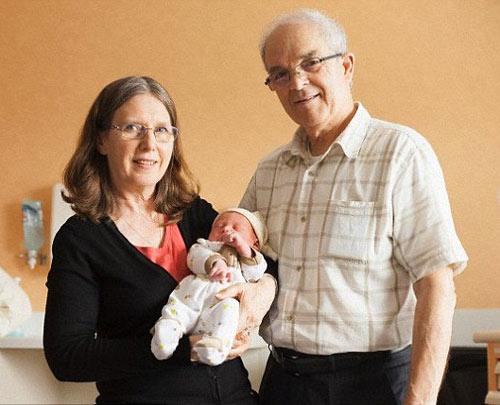|
查看原文
By 2050, a completely new type of human will evolve as a result of radical new technology, behaviour, and natural selection.
This is according to Cadell Last, a researcher at the Global Brain Institute, who claims mankind is undergoing a major 'evolutionary transition'.
In less than four decades, Mr Last claims we will live longer, have children in old age and rely on artificial intelligence to do mundane tasks.
This shift is so significant, he claims, it is comparable to the change from monkeys to apes, and apes to humans.
'Your 80 or 100 is going to be so radically different than your grandparents,' Mr Last says, who believe we will spend much of our time living in virtual reality.
Some evolutionary scientists believe this age could be as high as 120 by 2050.
Mr Last claims humans will also demonstrate delayed sexual maturation, according to a report by Christina Sterbenz in Business Insider.
This refers to something known as life history theory which attempts to explain how natural selection shape key events in a creature's life, such as reproduction.
It suggests that as brain sizes increase, organisms need more energy and time to reach their full potential, and so reproduce less.
Instead of living fast and dying young, Mr Last believes humans will live slow and die old.
'Global society at the moment is a complete mess,' he told MailOnline. 'But in crisis there is opportunity, and in apocalypse there can be metamorphosis.
'So I think the next system humanity creates will be far more sophisticated, fair, and abundant than our current civilisation.
'I think our next system will be as different from the modern world, as our contemporary world is from the medieval world.'
'The biological clock isn't going to be around forever,' he added, and said that people could pause it for some time using future technology.
The change is already happening. Today, the average age at which a woman in Britain has her first baby has been rising steadily stands at 29.8.
In the US, just one percent of first children were born to women over the age of 35 in 1970. By 2012, that figure rose to 15 percent.
'As countries become socioeconomically advanced, more and more people, especially women, have the option to engage in cultural reproduction,' Mr Last added.
And as well as having more child-free years to enjoy leisure time, he believes artificial intelligence will offset the need for low-skill jobs.
We may also spend a large amount of time living in virtual reality.'I'm not quite sure most people have really internalised the implications of this possibility,' Mr Last said.
His views are detailed in a paper, titled 'Human Evolution, Life History Theory, and the End of Biological Reproduction' published Current Aging Science.
|
查看譯文
(本文為編譯)
“環(huán)球大腦研究所”的卡德?tīng)?拉斯特稱,人類正在經(jīng)歷一場(chǎng)“革命性的轉(zhuǎn)變”����。受到新科技��、新行為和自然選擇的影響�,將有一種全新的人類在2050年之前進(jìn)化出來(lái)��。
拉斯特聲稱���,在不到40年的時(shí)間里�����,人類的壽命將延長(zhǎng)����,生育年齡將推后���,而平常不用動(dòng)腦子的瑣事則完全交給人工智能機(jī)器來(lái)完成���。拉斯特認(rèn)為,人類的這一變化意義重大�,可以和猴子變成類人猿、再由類人猿變成人類的進(jìn)化過(guò)程相提并論���。
有學(xué)者認(rèn)為���,到2050年�,人的壽命將顯著延長(zhǎng)��,能活到120歲�����。拉斯特進(jìn)一步猜想說(shuō)�����,等我們老了以后��,大部分生活都是在虛擬世界中進(jìn)行的��。他還大膽預(yù)言����,人類的性成熟時(shí)間將推后,聲稱這是自然選擇的結(jié)果�����。他的理由是���,人的大腦功能將進(jìn)一步加強(qiáng)�����,整個(gè)機(jī)體需要更多能量和時(shí)間才能生長(zhǎng)�、成熟���,而性成熟的時(shí)間也隨之延后�����。
拉斯特批評(píng)當(dāng)今世界“完全是一團(tuán)糟”�����,而人類即將創(chuàng)造的“下一套人文系統(tǒng)會(huì)復(fù)雜得多�����,并且更加公平�����、富饒”��。拉斯特還設(shè)想�,將來(lái)會(huì)有先進(jìn)的科學(xué)技術(shù),能夠隨時(shí)叫停我們的生物鐘����。
拉斯特說(shuō):“從生到死,我們的時(shí)間和精力都有限����,所以你得想明白要投身到生物性繁殖還是文化性繁殖中去。隨著各國(guó)在經(jīng)濟(jì)���、社會(huì)方面不斷進(jìn)步�����,越來(lái)越多的人——尤其是女性——將更多地參與到文化性繁殖中來(lái)��?����!?/p>
另外��,拉斯特預(yù)言人工智能將得到廣泛應(yīng)用��,取代低技術(shù)工作�����。另一方面�����,人類必須努力適應(yīng)不斷進(jìn)步的科學(xué)技術(shù)���,隨之而來(lái)的壓力也持續(xù)抬高生兒育女的成本。
拉斯特的研究已經(jīng)在《當(dāng)代老齡科學(xué)》上發(fā)表��。
(譯者 C-Daily 編輯 丹妮)
掃一掃����,關(guān)注微博微信
 
|

